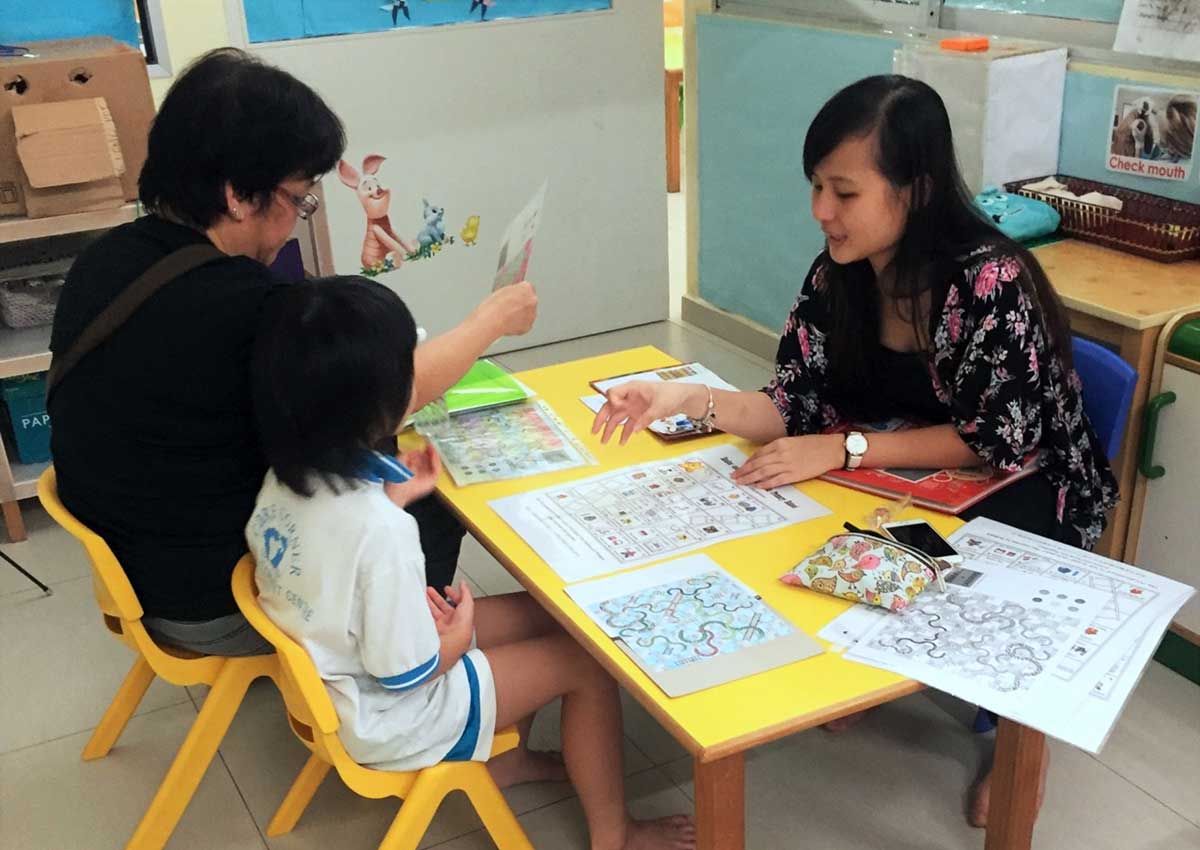A three-year-old programme to help children from disadvantaged backgrounds level up has reaped benefits, and is being expanded to include more children and families.
Piloted by Lien Foundation and Care Corner at two pre-schools in 2013, the Circle of Care programme has social workers and educational therapists working alongside pre-school teachers.
It led to higher rates of school attendance and gains in learning for the at-risk children at those two centres in Leng Kee and Admiralty.
The scheme is now being expanded to 15 pre-schools. Two primary schools – Lakeside and Gan Eng Seng – have also come under the programme to see how children can be helped with the transition to Primary 1.
Social workers will collaborate with the schools’ counsellors, teachers and allied educators to follow the child until Primary 3.
With the expansion, it is estimated that 30 per cent of the 1,700 pre-schoolers enrolled at the 15 pre-schools will need further help through the programme.
The programme uses an integrated approach that weaves a “circle of care” around the child. Teachers, social workers, education therapists and community partners – who typically work apart – come together to identify the root causes of a child’s difficulties and provide help on different fronts.
The model was shown to work for the 76 at-risk children at the two pilot centres, where 95 per cent of them came from families with household incomes of below $3,000 a month.
The Circle of Care team raised their average attendance from about 30 per cent to 70 per cent by working closely with their families.
Educational therapists working with pre-school teachers helped improve their literacy and numeracy skills.
Despite the encouraging results, Lien Foundation officials who went on a trip earlier this month to look at children’s centres in Adelaide and Melbourne said they and their partners are looking at how the programme can be improved further.
They said they were struck by the comprehensive and high-quality programmes and services offered to disadvantaged children and their families in the two Australian cities.
Besides providing kindergarten and childcare services, centres offered antenatal care for mothers- to-be, health checks and play sessions for babies and toddlers where mothers learn about the importance of play, talk and reading.
Lien Foundation chief executive officer Lee Poh Wah said one of the take-aways for him was how the programmes focused on not just helping the child, but the families too.
“Good parenting is key to helping these children. We must ensure that these kids have a strong family and good home environment.”
He also noted the emphasis placed on helping children develop traits such as grit and resilience.
Several of the children’s centres had mindfulness programmes to help children develop concentration and self-awareness.
Said Mr Lee: “We shouldn’t just focus on boosting their literacy and numeracy skills.
“Research shows that their socio-emotional skills such as impulse control and persistence and grit are as important for success.”
He was also impressed with the leaders in the early childhood education sector in Australia, and said it was crucial as overseas research has shown that school leadership is second only to teaching in affecting learning outcomes.
It was the reason that Lien Foundation launched a leadership programme called “Principal Matters” to help principals become more effective leaders.
Dr Khoo Kim Choo, consultant for Circle of Care, noted that some of the centres in Australia place much effort on helping the child transition to formal schooling.
Pre-school heads and teachers visit the primary schools and share the learning portfolios of the children heading there, while primary school teachers and heads also visit the pre-schools to see how they can align their curriculum and teaching to suit the children.
“It is important for pre-schools and primary schools to collaborate, if not some of the hard-won progress made by these children can be lost,” Dr Khoo said.
Mr Lee agreed, adding that the Education Ministry and Ministry of Social and Family Development should look into how pre-schools, primary schools and student-care centres located in schools can collaborate to better the outcomes for children who had lost out in the “lottery of life”.
sandra@sph.com.sg

This article was first published on May 23, 2016.
Get a copy of The Straits Times or go to straitstimes.com for more stories.






